For more information about this program, please contact the physics department PAN group
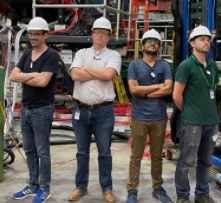
Professor Puckett’s Group Prepares New Measurements of “femtoscopic” Neutron Structure at Jefferson Lab
Professor Andrew Puckett’s research group is currently leading, as part of a collaboration of approximately 100 scientists from approximately 30 US and international institutions, the installation in Jefferson Lab’s Experimental Hall A of the first of a series of planned experiments known as the Super BigBite Spectrometer (SBS) Program, with beam to Hall A tentatively […]
[Read More]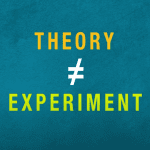
Standard model challenged by new measurement
It seems that the muon, a heavier partner of the electron, may be breaking what have been understood as the laws of physics. The findings announced on April 7th were met with excitement and speculation at what this might mean. UConn physics researchers Professor Thomas Blum and Assistant Professor Luchang Jin helped pioneer the theoretical physics behind the findings.
[Read More]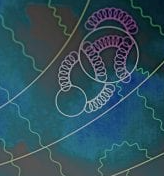
An anomalous moment for the muon
Mark Rayner/CERN The Fermilab E989 experiment announced the first new result on the muon’s anomalous magnetic moment in almost 20 years. The new measurement, combined with Brookhaven’s E821, has increased the discrepancy with the Standard Model value to 4.2 standard deviations. UConn Professors Tom Blum and Luchang Jin explain the theory calculations in a feature […]
[Read More]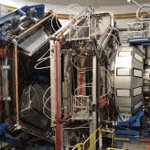
Prof. Kyungseon Joo named Chair of CLAS Collaboration at Jefferson Lab
Kyungseon Joo, a professor of physics, has been named Chair of the CLAS Collaboration, one of the largest international collaborations in nuclear physics. CLAS involves 50 institutions from 9 countries and has about 250 collaborators. The collaboration recently completed the upgrade of the CEBAF Large Acceptance Spectrometer (CLAS12) for operation at 11 GeV beam energy […]
[Read More]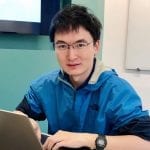
Professor Luchang Jin receives prestigious DOE Early Career Award
Assistant Professor of Physics Luchang Jin has been chosen to receive a prestigious Early Career Award from the US Department of Energy’s Office of High Energy Physics (HEP) for 2020. The amount of the award is $750,000 to be used over five years. The DOE Early Career Award is extremely competitive: this year only 16 scientists in […]
[Read More]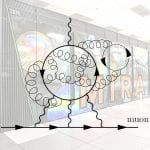
New result for part of muon anomaly
Professors Tom Blum and Luchang Jin, along with colleagues at BNL and Columbia, Nagoya, and Regensburg universities have completed a first-ever calculation of the hadronic light-by-light scattering contribution to the muon’s anomalous magnetic moment with all errors controlled. The work is published in Physical Review Letters as an Editor’s Suggestion and also appeared in […]
[Read More]
Ron Mallett Featured on NBC Connecticut
Could traveling into the past be part of our future? Quite possibly, says Ron Mallett, a UConn emeritus professor of physics who has studied the concept of time travel for decades. Earlier this month, he spoke with NBC Connecticut reporter Kevin Nathan about his life and work as a theoretical physicist, and discussed how time […]
[Read More]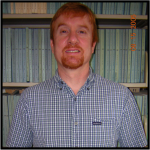
Research Spotlight: Exploring the nature of the universe with Dr. Thomas Blum
The Daily Campus published an article highlighting the research of Prof. Thomas Blum about Quantum Chromodynamics, a theory which describes the interactions between elementary particles. The development of this theory could help further understanding of the Standard Model of particle physics. The Standard Model is what physicists use to describe the fundamental building blocks of […]
[Read More]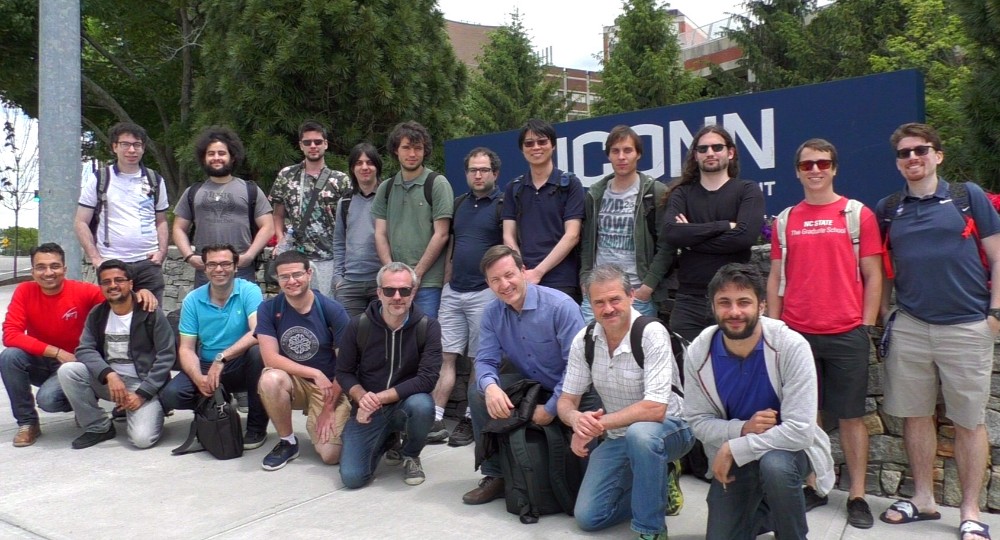
International Summer School “Strong interactions beyond simple factorization”
May 27-June 5 UConn Physics Department hosted an international summer school Strong interactions beyond simple factorization: collectivity at high energy from initial to final state. The school was supported by an NSF grant to Prof. Kovner and was devoted to modern approaches to the physics of high energy hadronic and heavy ion collisions.
[Read More]
Workshop ‘Dynamic Quantum Matter’ organized by UConn faculty
Dynamic Quantum Matter, Entangled orders and Quantum Criticality Workshop, June 18- June 19, 2018, sponsored by UConn, NSF, Nordita, Villum Center for Dirac Materials, Institute for Materials Science. The conference focused on entangled and non-equilibrium orders in quantum materials.
[Read More]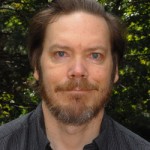
Prof. Wuosmaa has been awarded a 3-year grant
Prof Alan Wuosmaa has been awarded a grant for 3 years for Studies of exotic nuclei with transfer reactions. For the information about Prof. Wuosmaa research visit his home page.
[Read More]
Prof. Blum has been selected a “Fermilab Distinguished Scholar”
Professor Tom Blum has been selected a “Fermilab Distinguished Scholar”. Fermilab Distinguished Scholars are rotating multi-year appointments for U.S. theorists in either the Fermilab Theoretical Physics Department or the Theoretical Astrophysics Group. The Fermilab Distinguished Scholars program aims to: Strengthen connections between the Fermilab Theoretical Physics and Astrophysics groups and the wider U.S. particle-theory community. […]
[Read More]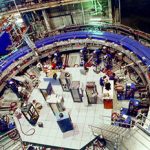
LQCD workshop to take place in Storrs
Muon g-2 Theory Initiative Hadronic Light-by-Light working group workshop
Workshop participants will discuss recent progress and plans to determine the hadronic light-by-light scattering contribution to the muon anomalous magnetic moment, which is expected to contribute the largest uncertainty in the Standard Model prediction. The goal of the workshop is to estimate current and expected systematic errors from lattice QCD, dispersive methods, and models and create a plan to address them in time for new experiments at Fermilab and J-PARC.
[Read More]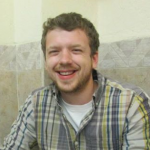
Alex Barnes, PhD April 2017, begins post-doctoral fellowship in Nuclear Physics at CMU
In May, 2017 UConn alumnus Alex Barnes was awarded a postdoctoral fellowship in Nuclear Physics at Carnegie Mellon University, working in the group of Prof. Curtis Meyer. Alex begins this appointment immediately after completing his PhD at the University of Connecticut in April 2017, under the guidance of Prof. Richard Jones. In his new position, […]
[Read More]
UConn undergraduate researcher developing new radon detector for household use
The U.S. Centers for Disease Control lists radon as a primary cause of lung cancer, second only to smoking. The Environmental Protection Agency estimates that 20,000 deaths each year from lung cancer in the U.S. are the result of exposure to radon in the living environment. It is believed that as many as 1 in […]
[Read More]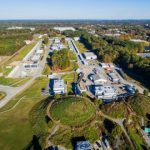
The newly upgraded CEBAF Accelerator opens door to strong force studies
Scientists have been rigorously commissioning the experimental equipment to prepare for a new era of nuclear physics experiments. This equipment is at the newly upgraded Continuous Electron Beam Accelerator Facility (CEBAF) at Jefferson Lab in Newport News, Virginia. These activities have already led to the first scientific result. This research demonstrates the feasibility of detecting a potential new kind of particles known collectively as exotic hadrons. The existence and spectrum of these new particles hold important clues to unlocking the mystery of “quark confinement” — why no quark has ever been found alone.
[Read More]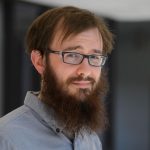
UConn PhD student Daniel Hoying receives Dept. of Energy fellowship
As a theoretical physicist studying the fundamental elements of matter, UConn graduate student Daniel Hoying creates calculations so large and complex they require supercomputers to perform them. So Hoying is obviously excited that he will soon have regular access to one of the world’s most powerful supercomputers at the U.S. Department of Energy’s Brookhaven National […]
[Read More]
Landmark g-2 experiment begins second phase in long career of testing the Standard Model
Instead of directly searching for new particles as the LHC experiments are doing in Geneva, the muon g-2 experiment at Fermilab measures a well-known physical property of the muon to ever greater precision, looking for deviations from the value it should have based on the Standard Model of particle physics, assuming that no new forces […]
[Read More]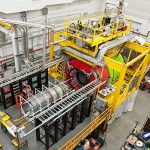
GlueX experiment publishes first scientific results following accelerator upgrade
Researchers working with the Continuous Electron Beam Accelerator Facility (CEBAF) at the U.S. Department of Energy’s Jefferson National Accelerator Facility (J-Lab) have published their first scientific results since the accelerator energy was increased from six billion electron volts (GeV) to 12 GeV. The upgrade was commissioned to enable the next generation of physics experiments that will allow scientists to see smaller bits of matter than have ever been seen before. The first publication from the upgraded CEBAF was published by the GlueX collaboration in the April issue of Physical Review C.
[Read More]